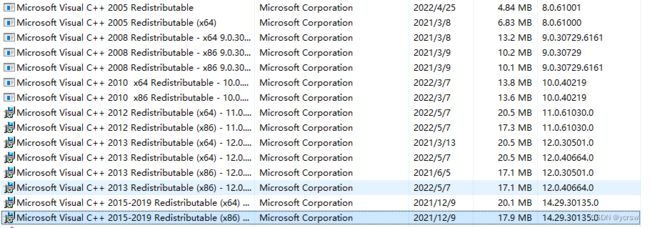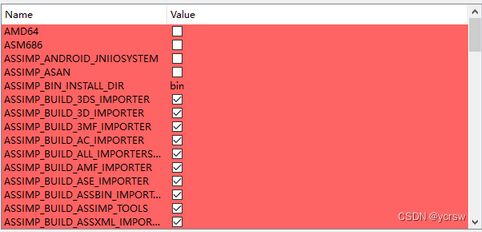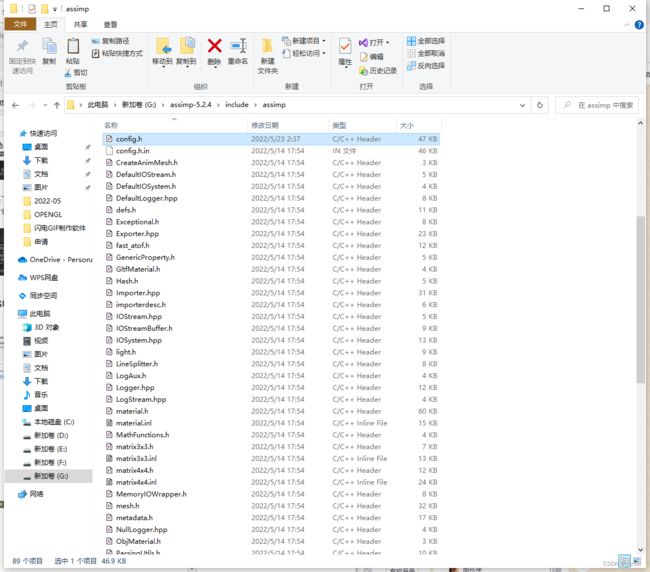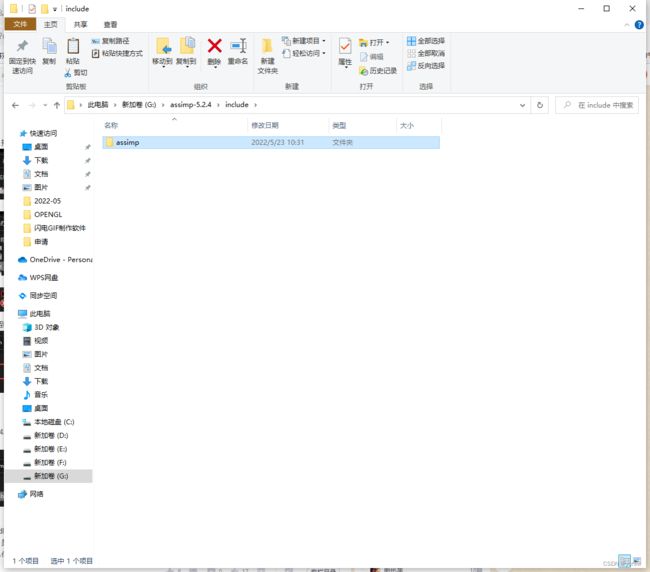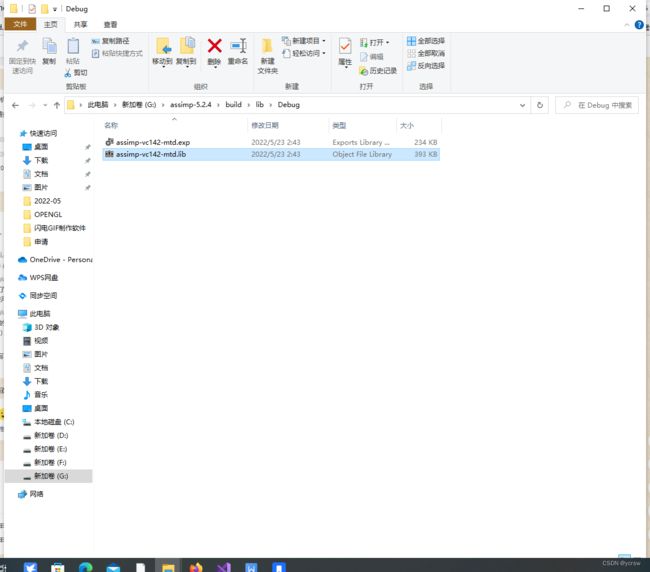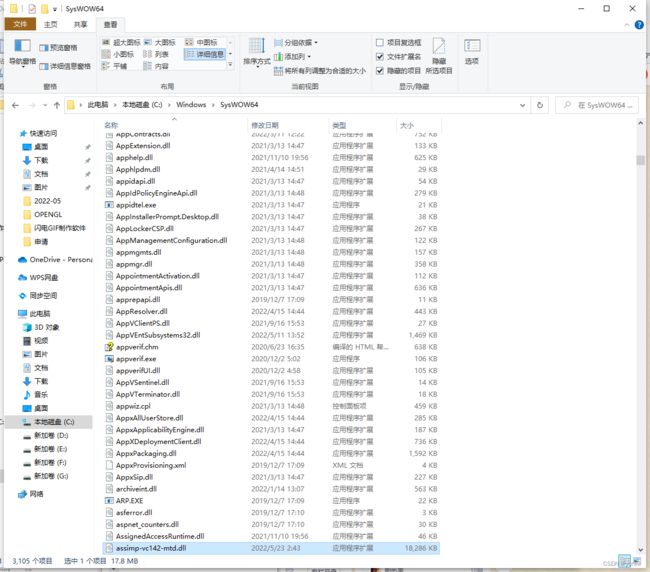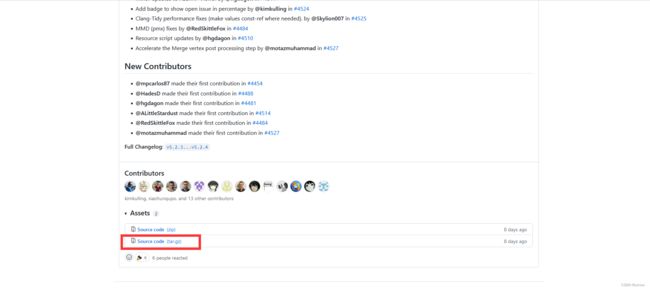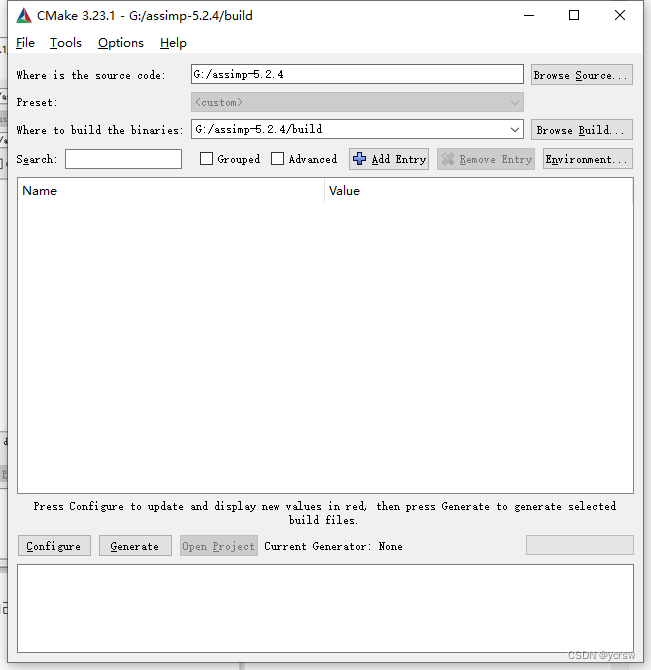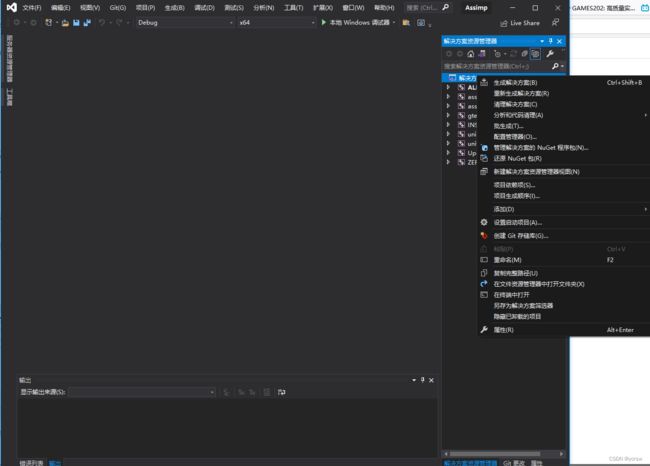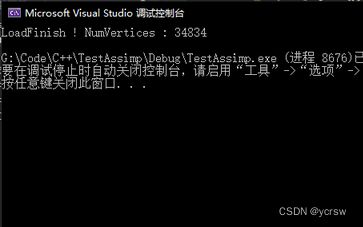- 于STM32F103C8T6的智能灯泡控制系统C++源码实现
程序员Thomas
STM32单片机智能灯泡stm32c++嵌入式硬件
以下是一个基于STM32F103C8T6的智能灯泡控制系统C++源码实现,整合了PWM调光、WiFi控制和环境感知功能。该代码已在STM32CubeIDE中验证,支持直接烧录运行:#include"main.h"#include#include"wifi.h"//LED设备抽象类(3设计)classLEDDevice{protected:TIM_HandleTypeDef*pwmTimer;uin
- 基于STM32的平衡车外设控制应用案例,提供C++源码
程序员Thomas
STM32单片机平衡车stm32c++单片机
基于STM32的平衡车外设控制应用案例**下面是一个使用STM32控制平衡车的简单应用案例,包含姿态传感器读取、电机控制和串口通信功能。主要功能使用MPU6050传感器读取姿态数据使用PID控制器调整平衡车姿态通过串口输出调试信息电机速度控制C++源代码#include"stm32f10x.h"#include//定义常量#definePWM_MIN1000#definePWM_MAX2000#d
- 深入理解C++中的std::string::substr成员函数:子串操作的艺术
星途码客
c++c++开发语言
引言在C++编程中,字符串处理是一项常见且重要的任务。std::string类作为C++标准库中的一部分,提供了丰富的成员函数来支持字符串的各种操作,其中substr成员函数在获取字符串子串方面扮演着关键角色。本文将深入探讨std::string::substr函数的工作原理、使用方法、异常处理以及性能考量,帮助读者全面掌握这一强大的字符串处理工具。题目:探索C++std::string::sub
- npm error gyp info
计算机辅助工程
npm前端node.js
在使用npm安装Node.js包时,可能会遇到各种错误,其中gyp错误是比较常见的一种。gyp是Node.js的一个工具,用于编译C++代码。这些错误通常发生在需要编译原生模块的npm包时。下面是一些常见的原因和解决方法:常见原因及解决方法Python未安装或版本不兼容:Node.js使用Python来运行gyp。确保你的系统上安装了Python,并且版本与node-gyp兼容。通常推荐使用Pyt
- C++缺省参数函数重载
ConFig.
c++算法数据结构
缺省参数大家知道什么是备胎吗?C++中函数的参数也可以配备胎。3.1缺省参数概念缺省参数是声明或定义函数时为函数的参数指定一个默认值。在调用该函数时,如果没有指定实参则采用该默认值,否则使用指定的实参。voidTestFunc(inta=0){cout_a=(int*)malloc(sizeof(int)*capacity);ps->_top=0;ps->_capacity=capacity;}i
- L2-050懂蛇语c++(pta天梯赛。测试点1。)
zzy678
c++
这个题目看上去还挺简单的,但是自己做的时候就超时了一开始只有19分。我自己stl学的不是很好,然后一开始自己用的pair和vector一起写的发现了一些小问题改了之后才得19。。。其中两个就是超时问题。可能查找太慢?之后又查看了一些别人写的,参考了使用map和vector混用的方法就很好过了,但是那个测试点1就是过不了。最后,我发现就是首字的处理方式应该优化。一个小小小坑。大家注意。#includ
- C语言_数据结构总结8:链式队列
*.✧屠苏隐遥(ノ◕ヮ◕)ノ*.✧
C语言—数据结构数据结构c语言开发语言visualstudiovisualstudio链表
纯C语言实现,不涉及C++链队列队列的链式表示称为链队列,它实际上是一个同时具有队头指针和队尾指针的单链表,头指针指向对头结点,尾指针指向队尾结点。头结点是链式队列中的特殊结点,通常不存储实际的队列元素数据,其主要作用是方便对队列的操作,例如在进行入队、出队操作时,可以统一操作逻辑,无需特殊处理队列为空的情况。它作为队列的头部标识,其next指针指向队列中的第一个真正存储数据的结点。尾结点(注意区
- C语言_数据结构总结10:二叉树的递归/非递归遍历
*.✧屠苏隐遥(ノ◕ヮ◕)ノ*.✧
C语言—数据结构数据结构算法链表visualstudiovisualstudioc语言b树
纯C语言实现,不涉及C++遍历是二叉树各种操作的基础,例如对于一棵给定二叉树求结点的双亲/求结点的孩子/求二叉树的高度/求叶结点个数/判断两棵二叉树是否相等……所有这些操作都是在二叉树遍历的过程中进行的。因此必须掌握二叉树的各种遍历过程,并能灵活用以解决各种问题。常见的遍历次序有:先序,中序,后序->其中“序”是指根结点何时被访问。先序:根结点->左子树->右子树中序:左子树->根结点->右子树后
- 编译链接过程
YancyKahn
编译链接编译链接GCC
编译链接过程C/C++程序从文本到可执行文件之间是一个复杂的过程.对于源代码(.c/.cpp)文件我们是不能直接运行的,必须经过一系列的处理才能转化为机器语言,再通过链接相应的文件转化为可执行程序.这个过程称为编译链接过程.本文篇幅较长,想直接看分析过程点击这里下面是从源代码到可执行文件的整个编译链接的过程:整个编译链接过程无非就分为编译过程和链接过程1.编译过程C文件编译过程又可分为:编译和汇编
- 第十八章:模板的多态力量_《C++ Templates》notes
郭涤生
c/c++c++开发语言笔记
模板的多态力量一、动态多态vs静态多态二、奇异递归模板模式(CRTP)三、策略模式(编译期策略选择)关键要点总结第一部分:多选题(10题)第二部分:设计题(5题)答案与详解多选题答案:设计题参考答案1.编译期策略选择器2.类型安全访问者模式3.概念约束数学库4.编译期工厂模式5.静态多态容器测试说明一、动态多态vs静态多态核心概念:动态多态:基于虚函数和继承体系,函数调用在运行时决定(通过虚函数表
- CPP编译与链接过程
阿斯顿的风格
c++开发语言ubuntulinuxbash编译汇编
1.概述在C++中,从源代码(.cpp文件)到最终可执行程序,需要经历以下四个主要阶段:预处理(Preprocessing)编译(Compilation)汇编(Assembly)链接(Linking)2.预处理预处理阶段是编译流程的第一步,主要处理以#开头的指令,包括宏定义、文件包含以及条件编译等。2.1文件包含(#include)工作原理:当预处理器遇到#include指令时,会在文件系统中查找
- 第十七章:Future Directions_《C++ Templates》notes
郭涤生
c/c++c++开发语言笔记
FutureDirections核心重难点:示例代码:设计题多选题答案设计题详解核心重难点:泛型非类型模板参数允许任意类型作为非类型模板参数(如template)需解决类型推导和链接问题编译期控制流constexprif替代模板偏特化(减少代码膨胀)折叠表达式优化可变参数模板处理反射与元编程增强类型检查(is_convertible_v等)反射提案(如成员变量/函数查询)模块化支持解决传统头文件包
- 访问者模式【行为模式C++】
GoWjw
设计模式访问者模式
1.概述访问者模式是一种行为设计模式,它能将算法与其所作用的对象隔离开来。访问者模式主要解决的是数据与算法的耦合问题,尤其是在数据结构比较稳定,而算法多变的情况下。为了不污染数据本身,访问者会将多种算法独立归档,并在访问数据时根据数据类型自动切换到对应的算法,实现数据的自动响应机制,并确保算法的自由扩展。访问者模式在实际开发中使用的非常少,因为它比较难以实现并且应用该模式肯能会导致代码的可读性变差
- 【分治法】最接近点对问题 C++(附代码分析及实例)
haaaaaaarry
算法设计与分析算法
问题描述给定平面上n个点,找其中的一对点,使得在n个点组成的所有点对中,该点对间的距离最小问题分析先考虑一下一维情况下,取中间某个点m,将所有点划分为两个集合,递归的找出左右集合的最接近点对,最后再和最靠近点m的左右两点间的距离作比较,最小的就是整个点对中最接近的现在将一维的情况扩展到二维,二维比一维复杂的地方在于每个点都有两个坐标,我们用一条直线l将平面上的所有点同样分成两个集合,再递归的去两个
- 浅谈VB.NET为何还没有被时代淘汰
练习AI两年半
.net
最近在做一个旧项目的更新和维护,比较头疼的是这个项目是08年写的,当时编写编写语言为c++、环境为vc6.0+MFC(嘶~,这玩意儿年纪比我还大),需要将环境改为VS2022、.NET框架,为配合项目组其他同事,新语言改用VB.NET。我之前一直在用C++和QT写项目,一时间让我换一种语言和框架,还要在c++和vb.net之间反复横跳确实让我很崩溃。但打工人再难的项目也要硬着头皮上呀,好在VB.N
- conda install 和 pip install 的区别
不知江月待何人..
深度学习
condainstall和pipinstall是两个常用的包安装命令,但它们在很多方面存在差异。1.所属管理系统不同1.1condainstallcondainstall是Anaconda和Miniconda发行版自带的包管理工具conda的安装命令。conda是一个跨平台的开源包管理系统和环境管理系统,它不仅可以管理Python包,还能管理其他语言(如R、C++等)的包。conda更侧重于数据科
- 在 C 和 C++ 编程里,要引用一个文件中的函数,包含头文件和使用extern,通常包含头文件是更好的做法
weixin_44799641
C/C++c语言c++
在C和C++编程里,要引用一个文件中的函数,通常包含头文件是更好的做法,下面为你详细分析:包含头文件优点代码清晰规范:在源文件里包含函数声明所在的头文件,能让代码结构更清晰,其他人阅读代码时能很容易明白函数的来源和用途。比如,#include"can_port.h"这样的语句明确表示该源文件要使用can_port.h头文件里声明的函数。自动更新声明:要是函数的声明有变动,只需修改头文件,所有包含该
- C++ 地图 + 配对组合!3 分钟吃透 map 和 pair 的黄金搭档
Reese_Cool
STL数据结构与算法c++算法开发语言stl
文章目录pair一、基本概念二、pair的声明与初始化三、成员访问与修改四、常用操作1.比较运算2.交换值3.tie函数(解包pair)五、pair的应用场景六、pair与结构体/类的对比七、pair与tuple的对比八、代码示例1.返回多个值2.存储键值对九、总结map一、基本概念二、map的声明与初始化三、常用操作四、map的应用场景五、注意事项在C++编程里,map和pair是标准库中十分实
- 第十六章:Specialization and Overloading_《C++ Templates》notes
郭涤生
c/c++c++开发语言笔记
SpecializationandOverloading一、模板特化与重载的核心概念二、代码实战与测试用例三、关键知识点总结四、进阶技巧五、实践建议多选题设计题代码测试说明一、模板特化与重载的核心概念函数模板重载(FunctionTemplateOverloading)//基础模板templateTmax(Ta,Tb){returna>b?a:b;}//显式特化(FullSpecializatio
- AtCoder备赛冲刺必刷题(C++) | 洛谷 AT_abc396_a Triple Four
热爱编程的通信人
c++算法开发语言
本文分享的必刷题目是从蓝桥云课、洛谷、AcWing等知名刷题平台精心挑选而来,并结合各平台提供的算法标签和难度等级进行了系统分类。题目涵盖了从基础到进阶的多种算法和数据结构,旨在为不同阶段的编程学习者提供一条清晰、平稳的学习提升路径。欢迎大家订阅我的专栏:算法题解:C++与Python实现!附上汇总贴:算法竞赛备考冲刺必刷题(C++)|汇总【题目来源】洛谷:AT_abc396_a[ABC396A]
- C/C++数据类型--整型类型
蓝心湄
C/C++数据类型c语言
概念数据类型表示的是数据的身份决定它可以进行什么操作、占用多少空间与数据结构的区别数据类型更倾向于表示数据的身份数据结构表示的是怎么操作数据(是在类型的基础上进行对数据的操作的)C语言允许使用的类型类型的分类算术类型:基本类型和枚举类型纯量类型:算术类型和指针类型组合类型:数组类型和结构体类型整型数据基本整型(int)长度为2字节或4字节短整型(shortint)长度为2字节长整型(longint
- Java:从入门到创新
java
Java:从入门到创新一、Java简介Java是一种广泛使用的高级编程语言,自1995年首次发布以来,一直深受开发者的喜爱。它由SunMicrosystems公司开发,后来被Oracle公司收购。Java的设计目标是简单、健壮、安全且跨平台,这些特性使其在企业级应用开发中占据重要地位。二、Java的主要特点(一)简单易学Java的语法与C语言和C++语言很接近,但丢弃了C++中一些复杂且容易出错的
- C++数组
ws262
算法c++数据结构
可以用来表达类型相同的元素的集合,集合的名字就叫数组名数组里的元素都是有编号的,元素的编号叫下标。通过数组名和下标,就能访问元素一维数组的定义如下:类型名数组名[元素个数];其中"元素个数“必须是常量或常量表达式,不能是变量,而且其值必须是正整数。元素个数称为”数组长度“Ta[N];//数组大小为N*sizeof(T)字节的存储空间表达式“sizeof(a)”的值就是整个数组的体积,即N*size
- 用c++语言编写的小程序,利用C++编写一些有趣的小程序
瑞士鲁迅
用c++语言编写的小程序
虽然说中学没有参加过信息学竞赛,但相对来说,我接触编程算是比较早的。和我同龄的人,若小学参加过计算机竞赛,大概还对PC-logo有点印象,这算是我对编程的最初体验,这里就不叙述。到了初中,便按着规定学习了一点Pascal,在家里也自己写过一点极其简单的程序。高中会考也需要学习VisualBasic,但学的十分浅显,并无什么收获。C语言是大学的必修课,于是在军训期间,我就买来《C++Primer》自
- C++徒手造国密SM算法!码农の头发消失术实录
skyksksksksks
C++个人杂记物联网国密算法国密算法密码学c++开发语言
【开场暴击:程序员的修仙之路】各位在秃头边缘疯狂试探的代码战士!今天我们要挑战史诗级成就——用纯C++手搓国家密码管理局钦定的SM2/SM3/SM4算法!没有现成库!没有外挂!只有头铁和即将离你而去的头发!(ง•̀_•́)ง【SM2加密:和椭圆曲线谈恋爱の玄学】这玩意儿就像追女神——你永远猜不透她的心思!来看加密の奥义三连:SM2加密vs追妹子对比表行为SM2加密流程追妹子流程第一步生成随机数k制
- C++ 用ECC算法 Curve为EC_NIST_FP_521写个示例 签名和验签。PCI认证
小黄人软件
经验分享ssl学习
以下是一个使用OpenSSL实现ECC(椭圆曲线密码)签名和验签的C++示例,曲线使用secp521r1(即NISTP-521)。这个程序:生成NISTP-521曲线的EC密钥。使用SHA-512进行哈希并签名数据。验证签名的正确性。编译:g++-oecc_signecc_sign.cpp-lssl-lcrypto运行:./ecc_sign你可以试试看,看看签名和验签是否成功!
- 什么是C++对象之间的view proxies
东北豆子哥
C++c++
在C++中,viewproxies是一种轻量级的对象,用于提供对另一个对象的间接访问或视图,而不直接拥有或管理该对象的数据。它们通常用于简化对复杂数据结构的访问,或在不需要复制数据的情况下提供特定的视图。1.ViewProxies的核心概念轻量级:Viewproxies通常不拥有数据,而是引用或包装另一个对象的数据。间接访问:通过viewproxies,可以以特定的方式访问或操作底层数据,而不需要
- 【C++开源库】tinyxml2解析库使用介绍
小庞在加油
C++知识c++开源tinyxml2解析库
TinyXML-2是一个在C++中使用的轻量级、简单且高效的XML解析库。它由LeeThomason开发,旨在提供快速解析和生成XML数据的功能,同时保持代码的简洁性和易于使用。TinyXML-2支持多种编译器和平台,包括Windows、Linux和macOS。特点与优势简单易用:TinyXML-2提供了直观的API,使得解析和生成XML文档变得简单。高性能:它经过优化,能够快速解析大型XML文件
- C++ 实例(二)
阳光向日葵向阳
c++算法数据结构
交换两个数以下我们使用两种方法来交换两个变量:使用临时变量与不使用临时变量。实例-使用临时变量#includeusingnamespacestd;intmain(){inta=5,b=10,temp;cout#includeusingnamespacestd;intmain(){inta=5,b=10;coutusingnamespacestd;intmain(){intn;cout
- 众数(masses)(c++)
羊蜜不是羊
c++算法数据结构
题目描述由文件给出N个1到30000间无序数正整数,其中1≤N≤10000,同一个正整数可能会出现多次,出现次数最多的整数称为众数。求出它的众数及它出现的次数。输入描述输入文件第一行是正整数的个数N,第二行开始为N个正整数。输出描述输出文件有若干行,每行两个数,第1个是众数,第2个是众数出现的次数。(两个数之间由一个空格间隔,行末无多余空格)样例输入12242325372343输出2434来源算法
- 微信开发者验证接口开发
362217990
微信 开发者 token 验证
微信开发者接口验证。
Token,自己随便定义,与微信填写一致就可以了。
根据微信接入指南描述 http://mp.weixin.qq.com/wiki/17/2d4265491f12608cd170a95559800f2d.html
第一步:填写服务器配置
第二步:验证服务器地址的有效性
第三步:依据接口文档实现业务逻辑
这里主要讲第二步验证服务器有效性。
建一个
- 一个小编程题-类似约瑟夫环问题
BrokenDreams
编程
今天群友出了一题:
一个数列,把第一个元素删除,然后把第二个元素放到数列的最后,依次操作下去,直到把数列中所有的数都删除,要求依次打印出这个过程中删除的数。
&
- linux复习笔记之bash shell (5) 关于减号-的作用
eksliang
linux关于减号“-”的含义linux关于减号“-”的用途linux关于“-”的含义linux关于减号的含义
转载请出自出处:
http://eksliang.iteye.com/blog/2105677
管道命令在bash的连续处理程序中是相当重要的,尤其在使用到前一个命令的studout(标准输出)作为这次的stdin(标准输入)时,就显得太重要了,某些命令需要用到文件名,例如上篇文档的的切割命令(split)、还有
- Unix(3)
18289753290
unix ksh
1)若该变量需要在其他子进程执行,则可用"$变量名称"或${变量}累加内容
什么是子进程?在我目前这个shell情况下,去打开一个新的shell,新的那个shell就是子进程。一般状态下,父进程的自定义变量是无法在子进程内使用的,但通过export将变量变成环境变量后就能够在子进程里面应用了。
2)条件判断: &&代表and ||代表or&nbs
- 关于ListView中性能优化中图片加载问题
酷的飞上天空
ListView
ListView的性能优化网上很多信息,但是涉及到异步加载图片问题就会出现问题。
具体参看上篇文章http://314858770.iteye.com/admin/blogs/1217594
如果每次都重新inflate一个新的View出来肯定会造成性能损失严重,可能会出现listview滚动是很卡的情况,还会出现内存溢出。
现在想出一个方法就是每次都添加一个标识,然后设置图
- 德国总理默多克:给国人的一堂“震撼教育”课
永夜-极光
教育
http://bbs.voc.com.cn/topic-2443617-1-1.html德国总理默多克:给国人的一堂“震撼教育”课
安吉拉—默克尔,一位经历过社会主义的东德人,她利用自己的博客,发表一番来华前的谈话,该说的话,都在上面说了,全世界想看想传播——去看看默克尔总理的博客吧!
德国总理默克尔以她的低调、朴素、谦和、平易近人等品格给国人留下了深刻印象。她以实际行动为中国人上了一堂
- 关于Java继承的一个小问题。。。
随便小屋
java
今天看Java 编程思想的时候遇见一个问题,运行的结果和自己想想的完全不一样。先把代码贴出来!
//CanFight接口
interface Canfight {
void fight();
}
//ActionCharacter类
class ActionCharacter {
public void fight() {
System.out.pr
- 23种基本的设计模式
aijuans
设计模式
Abstract Factory:提供一个创建一系列相关或相互依赖对象的接口,而无需指定它们具体的类。 Adapter:将一个类的接口转换成客户希望的另外一个接口。A d a p t e r模式使得原本由于接口不兼容而不能一起工作的那些类可以一起工作。 Bridge:将抽象部分与它的实现部分分离,使它们都可以独立地变化。 Builder:将一个复杂对象的构建与它的表示分离,使得同
- 《周鸿祎自述:我的互联网方法论》读书笔记
aoyouzi
读书笔记
从用户的角度来看,能解决问题的产品才是好产品,能方便/快速地解决问题的产品,就是一流产品.
商业模式不是赚钱模式
一款产品免费获得海量用户后,它的边际成本趋于0,然后再通过广告或者增值服务的方式赚钱,实际上就是创造了新的价值链.
商业模式的基础是用户,木有用户,任何商业模式都是浮云.商业模式的核心是产品,本质是通过产品为用户创造价值.
商业模式还包括寻找需求
- JavaScript动态改变样式访问技术
百合不是茶
JavaScriptstyle属性ClassName属性
一:style属性
格式:
HTML元素.style.样式属性="值";
创建菜单:在html标签中创建 或者 在head标签中用数组创建
<html>
<head>
<title>style改变样式</title>
</head>
&l
- jQuery的deferred对象详解
bijian1013
jquerydeferred对象
jQuery的开发速度很快,几乎每半年一个大版本,每两个月一个小版本。
每个版本都会引入一些新功能,从jQuery 1.5.0版本开始引入的一个新功能----deferred对象。
&nb
- 淘宝开放平台TOP
Bill_chen
C++c物流C#
淘宝网开放平台首页:http://open.taobao.com/
淘宝开放平台是淘宝TOP团队的产品,TOP即TaoBao Open Platform,
是淘宝合作伙伴开发、发布、交易其服务的平台。
支撑TOP的三条主线为:
1.开放数据和业务流程
* 以API数据形式开放商品、交易、物流等业务;
&
- 【大型网站架构一】大型网站架构概述
bit1129
网站架构
大型互联网特点
面对海量用户、海量数据
大型互联网架构的关键指标
高并发
高性能
高可用
高可扩展性
线性伸缩性
安全性
大型互联网技术要点
前端优化
CDN缓存
反向代理
KV缓存
消息系统
分布式存储
NoSQL数据库
搜索
监控
安全
想到的问题:
1.对于订单系统这种事务型系统,如
- eclipse插件hibernate tools安装
白糖_
Hibernate
eclipse helios(3.6)版
1.启动eclipse 2.选择 Help > Install New Software...> 3.添加如下地址:
http://download.jboss.org/jbosstools/updates/stable/helios/ 4.选择性安装:hibernate tools在All Jboss tool
- Jquery easyui Form表单提交注意事项
bozch
jquery easyui
jquery easyui对表单的提交进行了封装,提交的方式采用的是ajax的方式,在开发的时候应该注意的事项如下:
1、在定义form标签的时候,要将method属性设置成post或者get,特别是进行大字段的文本信息提交的时候,要将method设置成post方式提交,否则页面会抛出跨域访问等异常。所以这个要
- Trie tree(字典树)的Java实现及其应用-统计以某字符串为前缀的单词的数量
bylijinnan
java实现
import java.util.LinkedList;
public class CaseInsensitiveTrie {
/**
字典树的Java实现。实现了插入、查询以及深度优先遍历。
Trie tree's java implementation.(Insert,Search,DFS)
Problem Description
Igna
- html css 鼠标形状样式汇总
chenbowen00
htmlcss
css鼠标手型cursor中hand与pointer
Example:CSS鼠标手型效果 <a href="#" style="cursor:hand">CSS鼠标手型效果</a><br/>
Example:CSS鼠标手型效果 <a href="#" style=&qu
- [IT与投资]IT投资的几个原则
comsci
it
无论是想在电商,软件,硬件还是互联网领域投资,都需要大量资金,虽然各个国家政府在媒体上都给予大家承诺,既要让市场的流动性宽松,又要保持经济的高速增长....但是,事实上,整个市场和社会对于真正的资金投入是非常渴望的,也就是说,表面上看起来,市场很活跃,但是投入的资金并不是很充足的......
- oracle with语句详解
daizj
oraclewithwith as
oracle with语句详解 转
在oracle中,select 查询语句,可以使用with,就是一个子查询,oracle 会把子查询的结果放到临时表中,可以反复使用
例子:注意,这是sql语句,不是pl/sql语句, 可以直接放到jdbc执行的
----------------------------------------------------------------
- hbase的简单操作
deng520159
数据库hbase
近期公司用hbase来存储日志,然后再来分析 ,把hbase开发经常要用的命令找了出来.
用ssh登陆安装hbase那台linux后
用hbase shell进行hbase命令控制台!
表的管理
1)查看有哪些表
hbase(main)> list
2)创建表
# 语法:create <table>, {NAME => <family&g
- C语言scanf继续学习、算术运算符学习和逻辑运算符
dcj3sjt126com
c
/*
2013年3月11日20:37:32
地点:北京潘家园
功能:完成用户格式化输入多个值
目的:学习scanf函数的使用
*/
# include <stdio.h>
int main(void)
{
int i, j, k;
printf("please input three number:\n"); //提示用
- 2015越来越好
dcj3sjt126com
歌曲
越来越好
房子大了电话小了 感觉越来越好
假期多了收入高了 工作越来越好
商品精了价格活了 心情越来越好
天更蓝了水更清了 环境越来越好
活得有奔头人会步步高
想做到你要努力去做到
幸福的笑容天天挂眉梢 越来越好
婆媳和了家庭暖了 生活越来越好
孩子高了懂事多了 学习越来越好
朋友多了心相通了 大家越来越好
道路宽了心气顺了 日子越来越好
活的有精神人就不显
- java.sql.SQLException: Value '0000-00-00' can not be represented as java.sql.Tim
feiteyizu
mysql
数据表中有记录的time字段(属性为timestamp)其值为:“0000-00-00 00:00:00”
程序使用select 语句从中取数据时出现以下异常:
java.sql.SQLException:Value '0000-00-00' can not be represented as java.sql.Date
java.sql.SQLException: Valu
- Ehcache(07)——Ehcache对并发的支持
234390216
并发ehcache锁ReadLockWriteLock
Ehcache对并发的支持
在高并发的情况下,使用Ehcache缓存时,由于并发的读与写,我们读的数据有可能是错误的,我们写的数据也有可能意外的被覆盖。所幸的是Ehcache为我们提供了针对于缓存元素Key的Read(读)、Write(写)锁。当一个线程获取了某一Key的Read锁之后,其它线程获取针对于同
- mysql中blob,text字段的合成索引
jackyrong
mysql
在mysql中,原来有一个叫合成索引的,可以提高blob,text字段的效率性能,
但只能用在精确查询,核心是增加一个列,然后可以用md5进行散列,用散列值查找
则速度快
比如:
create table abc(id varchar(10),context blog,hash_value varchar(40));
insert into abc(1,rep
- 逻辑运算与移位运算
latty
位运算逻辑运算
源码:正数的补码与原码相同例+7 源码:00000111 补码 :00000111 (用8位二进制表示一个数)
负数的补码:
符号位为1,其余位为该数绝对值的原码按位取反;然后整个数加1。 -7 源码: 10000111 ,其绝对值为00000111 取反加一:11111001 为-7补码
已知一个数的补码,求原码的操作分两种情况:
- 利用XSD 验证XML文件
newerdragon
javaxmlxsd
XSD文件 (XML Schema 语言也称作 XML Schema 定义(XML Schema Definition,XSD)。 具体使用方法和定义请参看:
http://www.w3school.com.cn/schema/index.asp
java自jdk1.5以上新增了SchemaFactory类 可以实现对XSD验证的支持,使用起来也很方便。
以下代码可用在J
- 搭建 CentOS 6 服务器(12) - Samba
rensanning
centos
(1)安装
# yum -y install samba
Installed:
samba.i686 0:3.6.9-169.el6_5
# pdbedit -a rensn
new password:123456
retype new password:123456
……
(2)Home文件夹
# mkdir /etc
- Learn Nodejs 01
toknowme
nodejs
(1)下载nodejs
https://nodejs.org/download/ 选择相应的版本进行下载 (2)安装nodejs 安装的方式比较多,请baidu下
我这边下载的是“node-v0.12.7-linux-x64.tar.gz”这个版本 (1)上传服务器 (2)解压 tar -zxvf node-v0.12.
- jquery控制自动刷新的代码举例
xp9802
jquery
1、html内容部分 复制代码代码示例: <div id='log_reload'>
<select name="id_s" size="1">
<option value='2'>-2s-</option>
<option value='3'>-3s-</option


